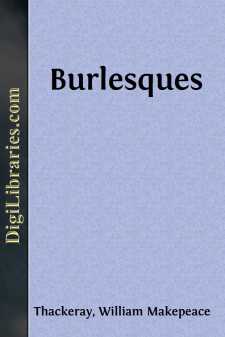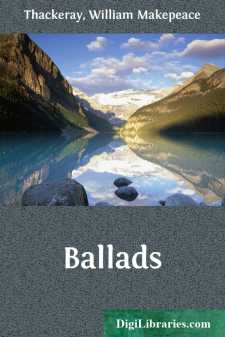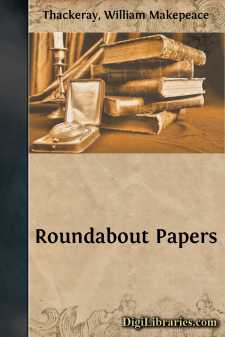Categories
- Antiques & Collectibles 13
- Architecture 36
- Art 48
- Bibles 22
- Biography & Autobiography 813
- Body, Mind & Spirit 142
- Business & Economics 28
- Children's Books 14
- Children's Fiction 11
- Computers 4
- Cooking 94
- Crafts & Hobbies 4
- Drama 346
- Education 46
- Family & Relationships 57
- Fiction 11828
- Games 19
- Gardening 17
- Health & Fitness 34
- History 1377
- House & Home 1
- Humor 147
- Juvenile Fiction 1873
- Juvenile Nonfiction 202
- Language Arts & Disciplines 88
- Law 16
- Literary Collections 686
- Literary Criticism 179
- Mathematics 13
- Medical 41
- Music 40
- Nature 179
- Non-Classifiable 1768
- Performing Arts 7
- Periodicals 1453
- Philosophy 64
- Photography 2
- Poetry 896
- Political Science 203
- Psychology 42
- Reference 154
- Religion 513
- Science 126
- Self-Help 84
- Social Science 81
- Sports & Recreation 34
- Study Aids 3
- Technology & Engineering 59
- Transportation 23
- Travel 463
- True Crime 29
George Cruikshank
Categories:
Description:
Excerpt
Accusations of ingratitude, and just accusations no doubt, are made against every inhabitant of this wicked world, and the fact is, that a man who is ceaselessly engaged in its trouble and turmoil, borne hither and thither upon the fierce waves of the crowd, bustling, shifting, struggling to keep himself somewhat above water—fighting for reputation, or more likely for bread, and ceaselessly occupied to-day with plans for appeasing the eternal appetite of inevitable hunger to-morrow—a man in such straits has hardly time to think of anything but himself, and, as in a sinking ship, must make his own rush for the boats, and fight, struggle, and trample for safety. In the midst of such a combat as this, the "ingenious arts, which prevent the ferocity of the manners, and act upon them as an emollient" (as the philosophic bard remarks in the Latin Grammar) are likely to be jostled to death, and then forgotten. The world will allow no such compromises between it and that which does not belong to it—no two gods must we serve; but (as one has seen in some old portraits) the horrible glazed eyes of Necessity are always fixed upon you; fly away as you will, black Care sits behind you, and with his ceaseless gloomy croaking drowns the voice of all more cheerful companions. Happy he whose fortune has placed him where there is calm and plenty, and who has the wisdom not to give up his quiet in quest of visionary gain.
Here is, no doubt, the reason why a man, after the period of his boyhood, or first youth, makes so few friends. Want and ambition (new acquaintances which are introduced to him along with his beard) thrust away all other society from him. Some old friends remain, it is true, but these are become as a habit—a part of your selfishness; and, for new ones, they are selfish as you are. Neither member of the new partnership has the capital of affection and kindly feeling, or can even afford the time that is requisite for the establishment of the new firm. Damp and chill the shades of the prison-house begin to close round us, and that "vision splendid" which has accompanied our steps in our journey daily farther from the east, fades away and dies into the light of common day.
And what a common day! what a foggy, dull, shivering apology for light is this kind of muddy twilight through which we are about to tramp and flounder for the rest of our existence, wandering farther and farther from the beauty and freshness and from the kindly gushing springs of clear gladness that made all around us green in our youth! One wanders and gropes in a slough of stock-jobbing, one sinks or rises in a storm of politics, and in either case it is as good to fall as to rise—to mount a bubble on the crest of the wave, as to sink a stone to the bottom.
The reader who has seen the name affixed to the head of this article scarcely expected to be entertained with a declamation upon ingratitude, youth, and the vanity of human pursuits, which may seem at first sight to have little to do with the subject in hand. But (although we reserve the privilege of discoursing upon whatever subject shall suit us, and by no means admit the public has any right to ask in our sentences for any meaning, or any connection whatever) it happens that, in this particular instance, there is an undoubted connection. In Susan's case, as recorded by Wordsworth, what connection had the corner of Wood Street with a mountain ascending, a vision of trees, and a nest by the Dove? Why should the song of a thrush cause bright volumes of vapor to glide through Lothbury, and a river to flow on through the vale of Cheapside? As she stood at that corner of Wood Street, a mop and a pail in her hand most likely, she heard the bird singing, and straight-way began pining and yearning for the days of her youth, forgetting the proper business of the pail and mop. Even so we are moved by the sight of some of Mr. Cruikshank's works—the "Busen fuhlt sich jugendlich erschuttert," the "schwankende Gestalten" of youth flit before one again,—Cruikshank's thrush begins to pipe and carol, as in the days of boyhood; hence misty moralities, reflections, and sad and pleasant remembrances arise. He is the friend of the young especially. Have we not read, all the story-books that his wonderful pencil has illustrated? Did we not forego tarts, in order to buy his "Breaking-up," or his "Fashionable Monstrosities" of the year eighteen hundred and something?...












